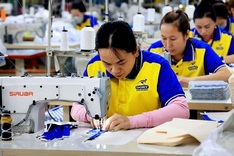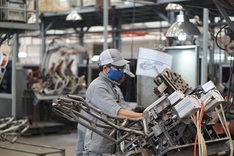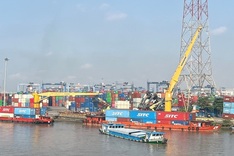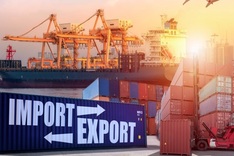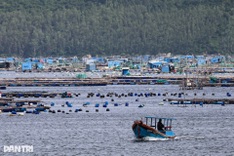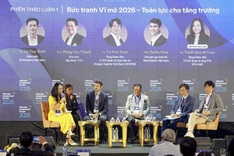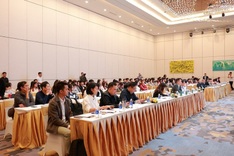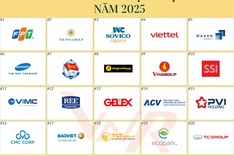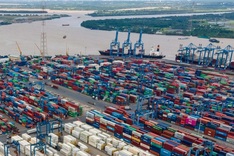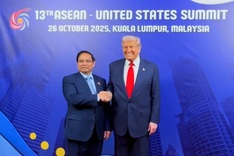Asian merger activity grew at a record pace in the first quarter of the year, as investment bankers scrambled to help foreign firms tap the region's growing markets, and to fund local companies' expansion abroad.
 |
| An employee greets customers at Fast Retailing's Uniqlo store in Tokyo last month. Fast Retailing's CEO is looking for deals. |
The top deal in the region—and globally—during the first three months of the year was British insurer Prudential PLC's $35.5 billion acquisition of American International Group's Asian life-insurance business.
But even excluding that transaction, the percentage increase was larger than for other regions, according to statistics released Friday by financial data provider Dealogic.
Bankers expect the volume of deals involving Asian companies to continue to swell throughout the year, but said it was difficult to predict with certainty due to an unusually cloudy global economic outlook.
"Dialogues with clients suggest that M&A volume will be substantially higher in Asia this year, but whether it results in real deals remains dependent on markets, negotiations and valuations," said Farhan Faruqui, head of global banking in the Asia Pacific at Citigroup, which ranked third in the volume of deals it brokered in the region, including advising AIG on its disposal.
Still Mr. Faruqui said he is confident that the underlying trend in Asia is upwards, and he expects to see the region regularly representing a third of global M&A volumes in years to come.
Asia Pacific M&A excluding Japan represented a record 23% of announced global M&A volume for the first quarter, up from 10% a year earlier and 13% in the first quarter of 2008, according to Dealogic data.
Overall, Asia Pacific M&A volume excluding Japan jumped 126% to $141 billion, a record for the quarter. U.S. activity fell 11% to $220 billion and European volume slipped 3% to $162 billion.
Bankers usually separate out Japanese data because it has such a large domestic market. Including Japan, Asian M&A volume hit $166 billion in the quarter, up 79% year-on-year.
Japanese companies shopping abroad hit a record high for the first quarter, according to separate data from Thomson Reuters.
Across the region, companies are looking for deals. In Japan, Fast Retailing Co.'s Chief Executive Tadashi Yanai said in February he plans to spend up to $11 billion to strengthen its global presence.
In India, Reliance Industries Ltd. has increased its war chest by about $2 billion from the sales of treasury stock over recent months.
There are deals on the table pending resolution. Reliance has offered $14.5 billion for Rotterdam-based petrochemicals maker LyondellBasell Industries, which the target has rejected. Analysts have suggested the Indian company may start to look elsewhere.
Japanese drug maker Astellas Pharma Inc. said Wednesday it will extend its $3.5 billion hostile bid for U.S. cancer-drug developer OSI Pharmaceuticals Inc. until April 23.
These companies can turn to local lenders to finance their shopping spree as the Asian local-bank market was never as hard hit by the financial crisis as those in the U.S. and Europe, and so is recovering faster.
"Banks are available to provide support for acquisitions, unlike in the U.S. and Europe, where potential acquirers are either struggling to access liquidity, or the price of that liquidity is too high," Citi's Mr. Faruqui said.
In Asia, banks are increasingly ready to cut fees and are working together on deals to capture a larger share of a growing market in deal making. Bank of Communications Co., China's fifth-largest lender by assets, picked 14 banks to handle its rights issue worth up to 42 billion yuan rights, a person familiar with the situation said in March.
Also in March, banks refinanced China Network Systems Co. for 31 billion New Taiwan dollars (US$975.8 million), people familiar with the matter said. The refinancing was more than twice oversubscribed by financial institutions eager to lend, and was underwritten by 14 banks, an unusually large number.
Global investment banks such as Citi are looking to allocate more resources to the region, while regional banks such as Nomura Holdings Inc. are seeking to expand outside their domestic markets.
This also is leading to fights over rainmakers, people with experience and deep corporate contacts, in sectors likely to see more cross-border activity.
Citi hired Nomura's Colin Banfield in March as head of Asia Pacific M&A, enticing him partly with a new role to help capture the growing traffic in cross-border M&A.
Mr. Banfield has worked on several high-profile deals in the resources sector, such as the $14.3 billion acquisition by Aluminum Corp. of China, better known as Chinalco, of a 12% stake in Anglo-Australian mining giant Rio Tinto PLC.


